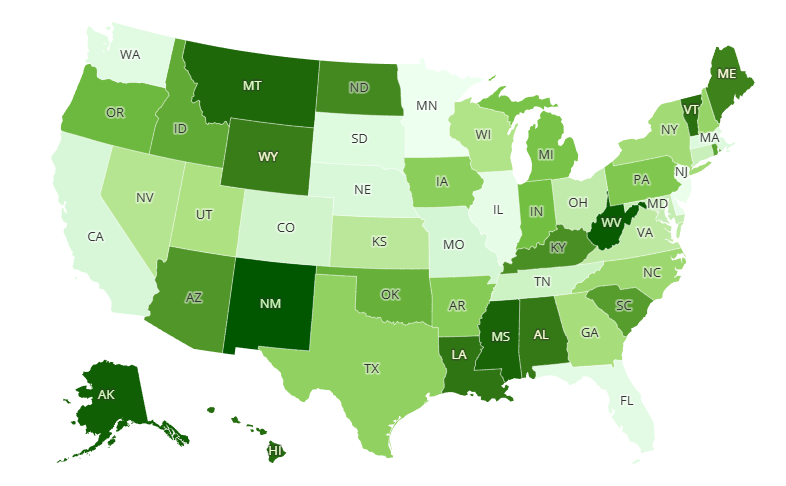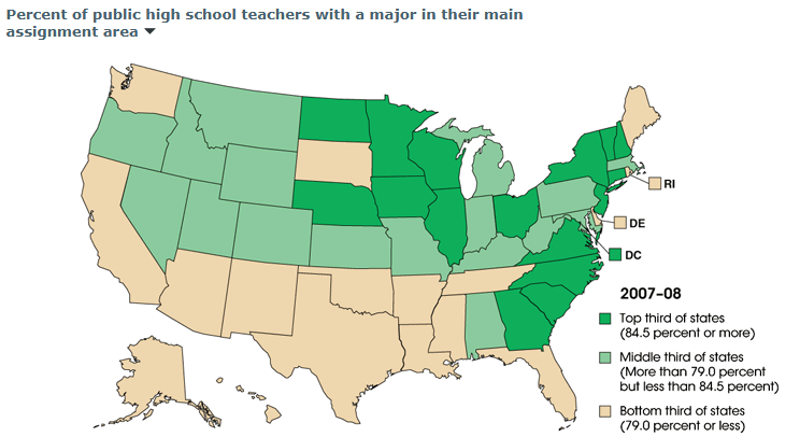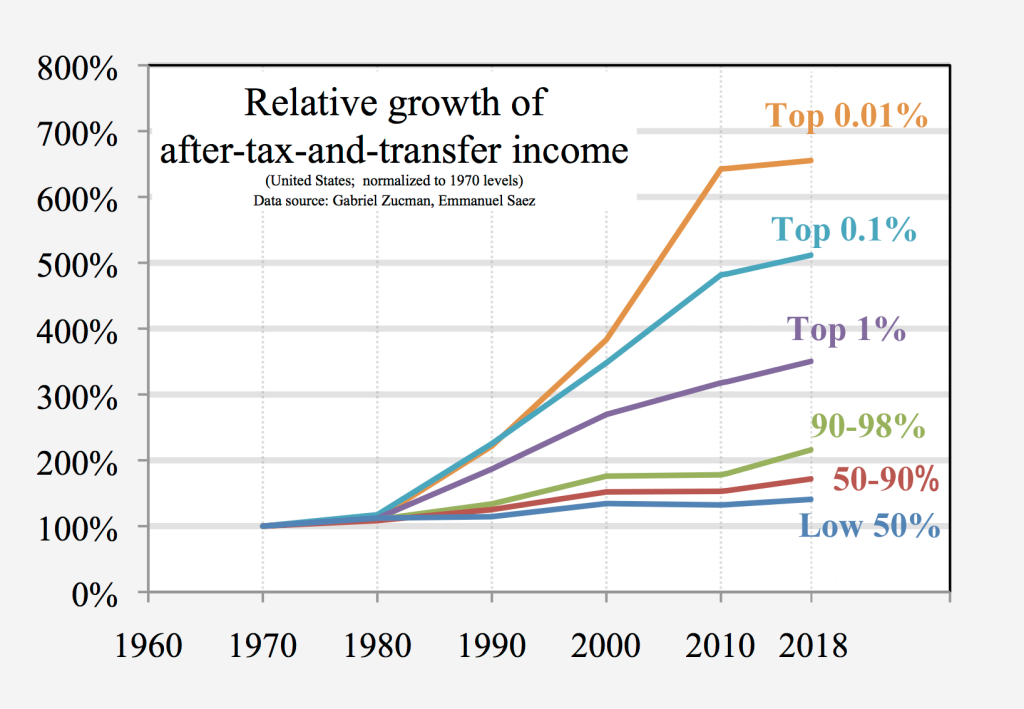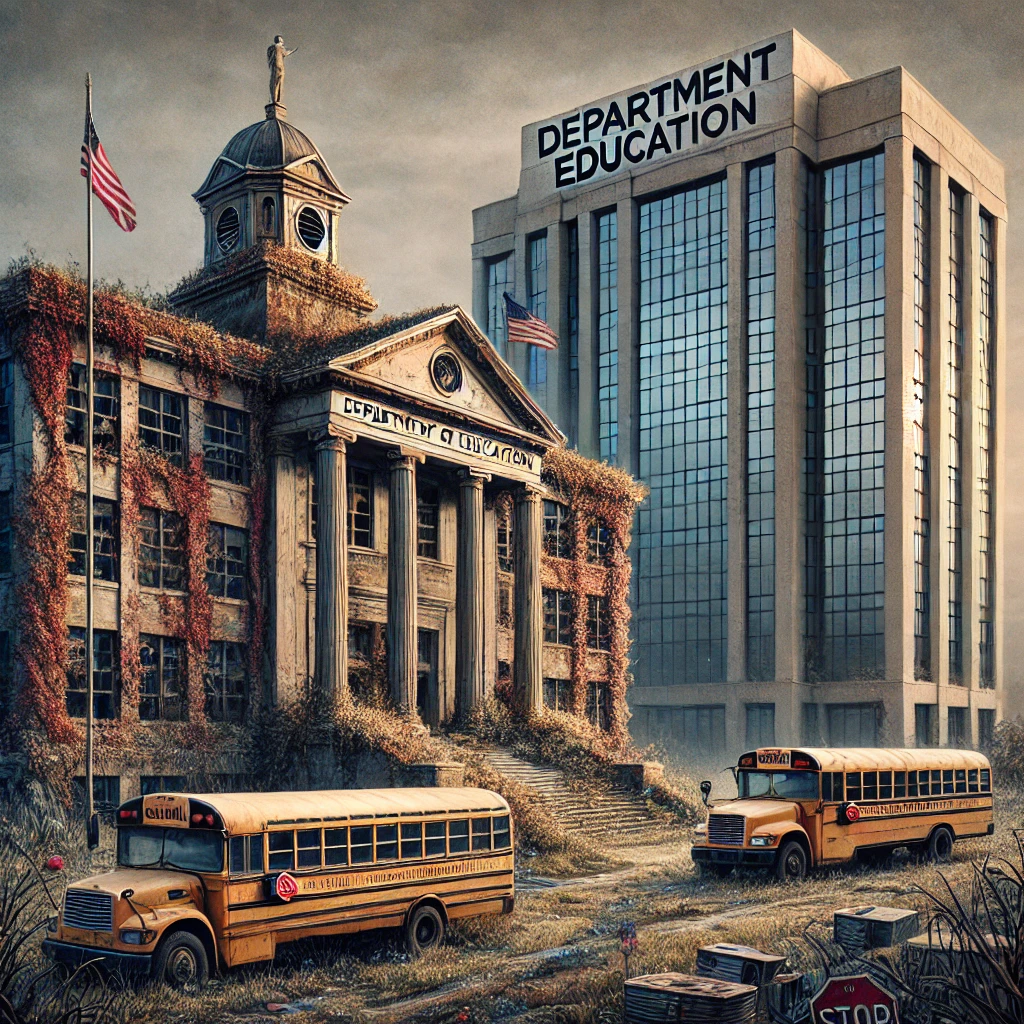Disclaimer: My wife is a retired Elementary Teacher.
The Department of Education (DoE) plays a significant role in U.S. education, overseeing funding, enforcing federal laws, and supporting special programs. Proposals to eliminate it often cite efficiency or state-level control as justifications, but the outcomes of such a move would likely be far-reaching and disruptive. Below are the top ten outcomes that could arise from dismantling the DoE:

- Delays in Funding Distribution
Federal programs like PELL grants, school lunch initiatives, and Title I funding for disadvantaged schools are administered by the DoE. Eliminating the department would leave these programs in limbo, with no infrastructure to process payments. This scenario mirrors past examples, such as delayed payments in Nebraska’s privatized foster care system, where providers went bankrupt before the state could address the crisis.

- Chaos in Special Education Services
The Individuals with Disabilities Education Act (IDEA) is overseen by the DoE. Without enforcement and funding mechanisms, special education programs would likely collapse, leaving disabled students without essential support and legal protections.

- Increased Privatization of Education
Privatization often leads to reduced accountability and higher costs. For-profit models, like private prisons, show that privatization prioritizes profit over quality and fairness. Applying this model to education could exacerbate inequalities, especially in low-income communities. Funding is diverted from public school systems to subsidize private schools for affluent community members.

- Unequal Impact on States
States like Mississippi, New Mexico, Louisiana, Alaska, and West Virginia would be hit hardest by the elimination of the Department of Education due to their heavy reliance on federal subsidies, which make up 20-25% of their education budgets. These funds support low-income students, rural schools, special education, and Native American communities. Without federal assistance, these states—already grappling with high poverty rates and limited local tax revenues—would face severe budget shortfalls, larger class sizes, and cuts to essential programs, exacerbating educational inequalities. Wealthier states might absorb the shock, but poorer states could see massive cuts to services, larger class sizes, and reduced teacher pay.

- Erosion of Civil Rights Protections
The DoE enforces civil rights laws ensuring equal access to education for marginalized groups, including racial minorities, LGBTQ+ students, and students with disabilities. Removing this oversight could embolden states to reduce or eliminate these protections.

- Disruption of Student Loan Programs
The federal student loan system, administered by the DoE, would face significant uncertainty. Past instances, such as the near-cessation of loan forgiveness during the Trump administration, highlight how administrative dismantling can effectively end programs without repealing laws.

- Undermining Public School Systems
Federal oversight ensures baseline standards for curriculum, teacher qualifications, and resource allocation. Without these, states may adopt inconsistent or inadequate policies, leading to a decline in educational quality.

- Collapse of Rural and Low-Income Schools
Federal funding supports rural schools, transportation, and essential programs like Head Start. Eliminating the DoE would disproportionately harm these areas, where local taxes cannot compensate for lost federal dollars.

- Dismantling Teacher Unions and Protections
A weakened federal role could undermine teacher unions, leaving educators with less bargaining power. This could lead to lower pay, reduced benefits, and fewer job protections, especially in conservative states.

- Economic and Social Consequences
Education is a public good that benefits society as a whole. Weakening public education could widen the wealth gap, reduce social mobility, and harm economic growth. Businesses depend on a well-educated workforce, and communities benefit from informed, engaged citizens.
While the elimination of the DoE might appeal to those seeking smaller federal government, the costs—both financial and societal—could far outweigh the benefits. Examples from other sectors show that privatization often increases inefficiency and inequity. Dismantling the DoE could lead to chaos, deepening divisions in an already stratified educational system.





